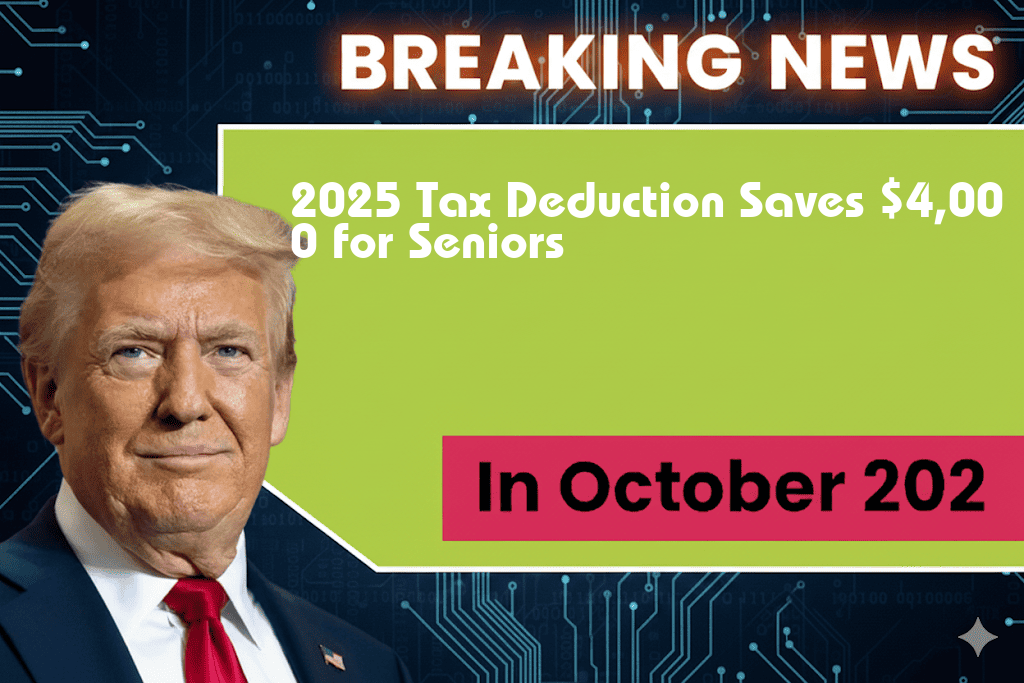In a significant move aimed at providing financial relief to the most vulnerable populations, the U.S. Congress has introduced a new tax deduction set to take effect in 2025. This initiative is expected to benefit low-income individuals and senior citizens, potentially allowing them to save an additional $4,000 annually. The new deduction is part of broader efforts to address income inequality and provide support to those who often struggle to meet basic living expenses. As inflation continues to impact everyday costs, this tax relief could prove pivotal for many households, enabling them to allocate more funds toward essential needs such as healthcare, housing, and food.
Details of the New Tax Deduction
The proposed tax deduction, which is still subject to final legislative approval, aims to ease the financial burden on individuals earning below a certain income threshold. Key details of the plan include:
- Eligibility: The deduction will primarily target individuals and couples whose adjusted gross income falls below the federal poverty line.
- Deduction Amount: Eligible taxpayers can claim a deduction of up to $4,000 on their federal tax returns.
- Implementation Date: The deduction is set to be implemented beginning with the 2025 tax year.
Who Will Benefit?
Low-income individuals and seniors are likely to be the primary beneficiaries of this new tax deduction. With rising costs of living, these groups often face significant financial challenges. According to a report by the U.S. Census Bureau, nearly 10% of seniors live below the poverty line, highlighting the urgent need for additional financial support.
Potential Impact on Households
The impact of the new tax deduction could be profound for many families. An extra $4,000 could mean the difference between financial stability and hardship. For instance:
| Household Type | Current Annual Income | Projected Savings from Deduction |
|---|---|---|
| Single Adult | $25,000 | $4,000 |
| Senior Couple | $35,000 | $4,000 |
| Single Parent with One Child | $30,000 | $4,000 |
Broader Economic Implications
The introduction of this tax deduction is not just a lifeline for individuals; it could also stimulate economic growth. By putting more disposable income into the hands of those who are likely to spend it, the deduction could boost local economies. Economic analysts suggest that when low-income individuals receive additional funds, they are more inclined to spend money on essential goods and services, thereby fostering job creation and overall economic development.
Political Support and Opposition
The proposal has garnered bipartisan support in Congress, although some critics express concerns regarding its long-term sustainability. Advocates argue that the potential benefits far outweigh the costs, emphasizing that investing in lower-income populations can lead to a healthier economy. Opponents, however, caution about the increased burden on taxpayers and the potential for government overspending.
The Path Forward
As discussions continue, the proposed tax deduction is expected to be a focal point in upcoming legislative sessions. Stakeholders from various sectors, including advocacy groups and financial organizations, are monitoring the situation closely. If approved, the deduction will represent a significant step toward addressing income inequality and providing support to those who need it most.
For more information on this development, visit the Congress.gov website.
Frequently Asked Questions
What is the new 2025 tax deduction mentioned in the article?
The new 2025 tax deduction is a proposed benefit aimed at providing financial relief to low-income individuals and seniors, potentially saving them an additional $4,000 in taxes.
Who qualifies for this tax deduction?
This tax deduction is designed specifically for low-income individuals and seniors, ensuring that those who are most in need of financial assistance can benefit from the savings.
How can individuals apply for the 2025 tax deduction?
Individuals can apply for the 2025 tax deduction by filing their tax returns for the year 2025, ensuring they meet the eligibility criteria set forth by the tax authorities.
What are the potential benefits of this tax deduction for seniors?
The tax deduction could significantly reduce the tax burden on seniors, providing them with additional funds to support their living expenses and healthcare needs.
When will the 2025 tax deduction take effect?
The 2025 tax deduction is expected to take effect starting in the tax year 2025, allowing eligible taxpayers to benefit from the savings when they file their returns in 2026.

Leave a Reply